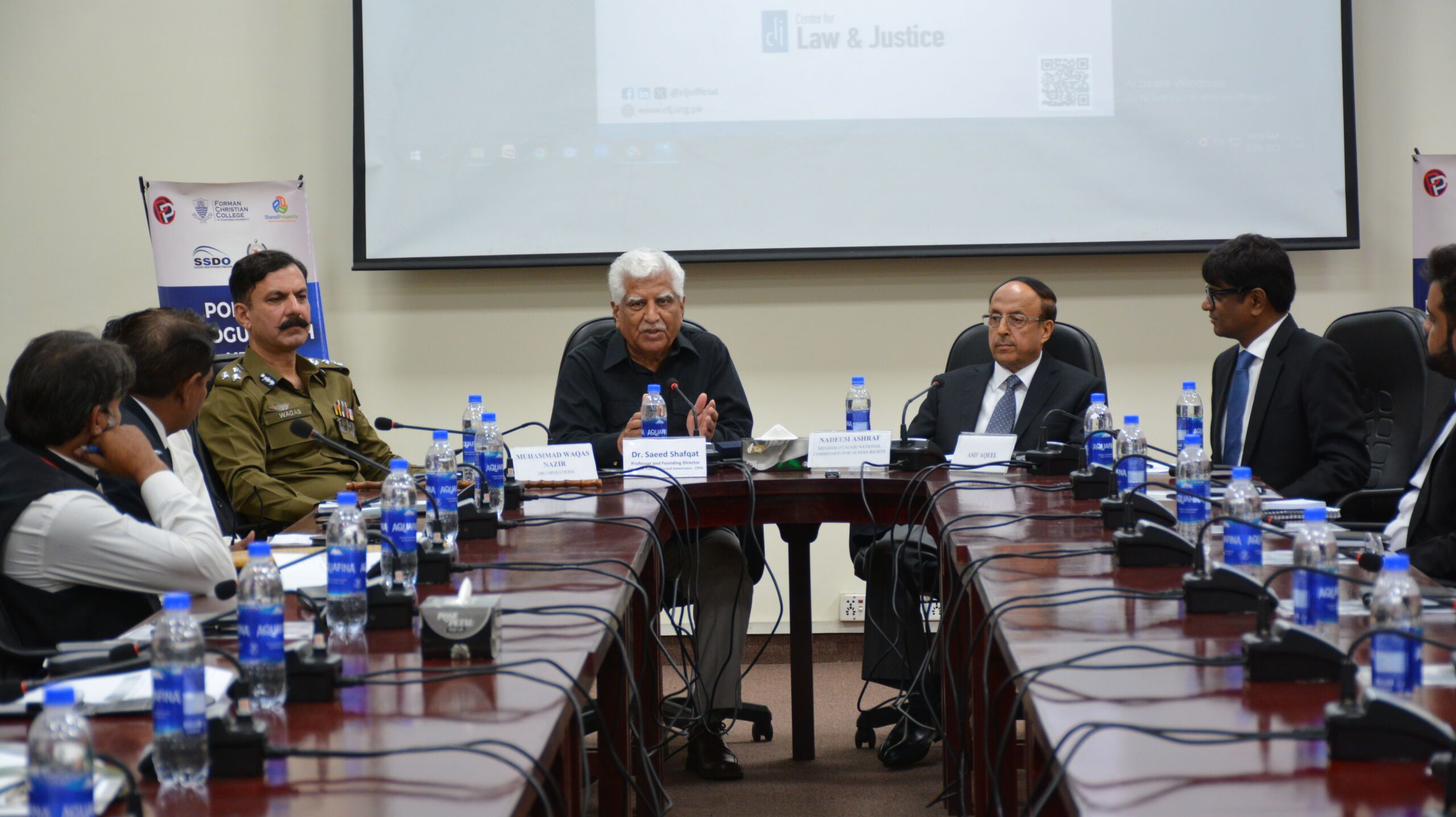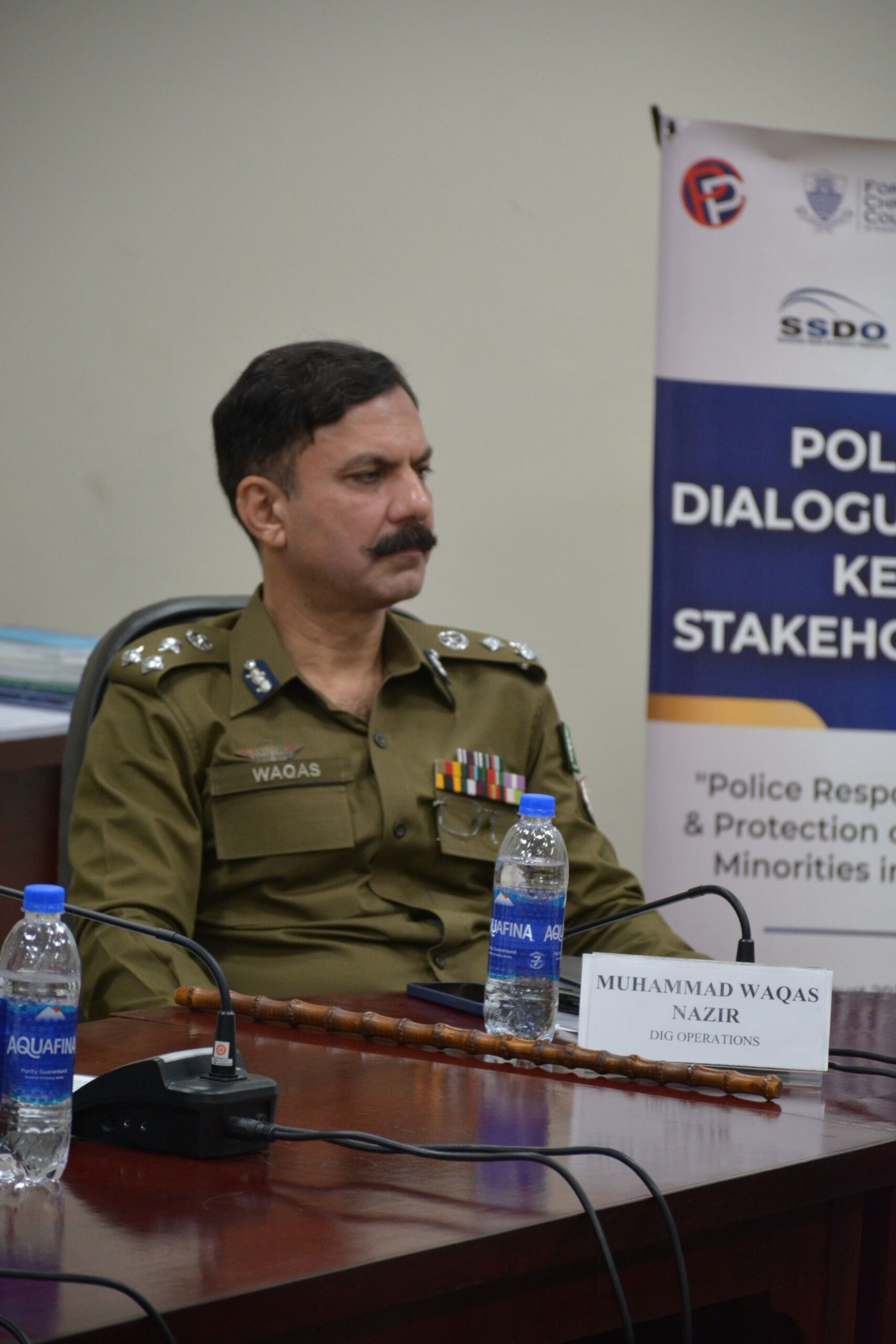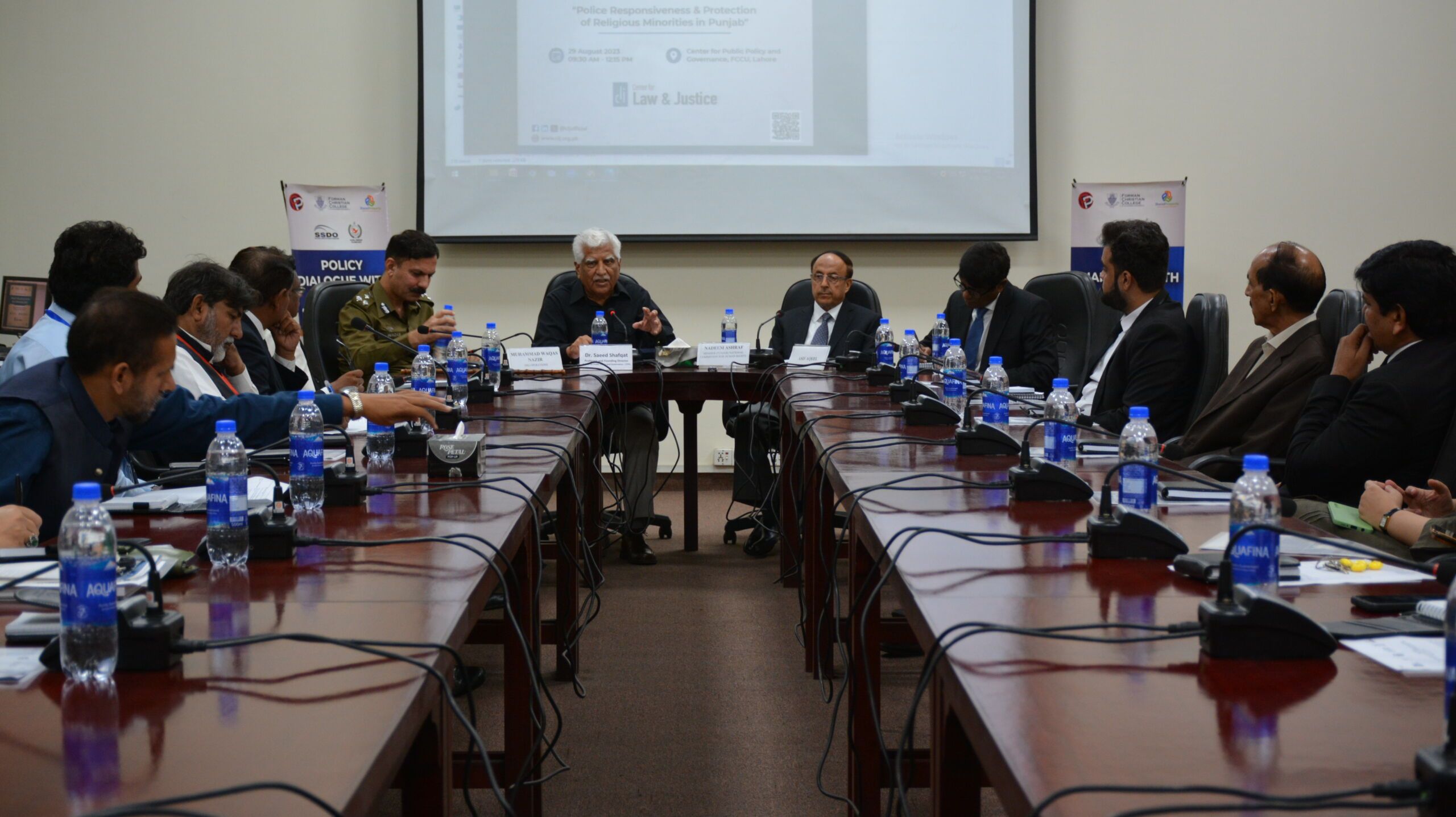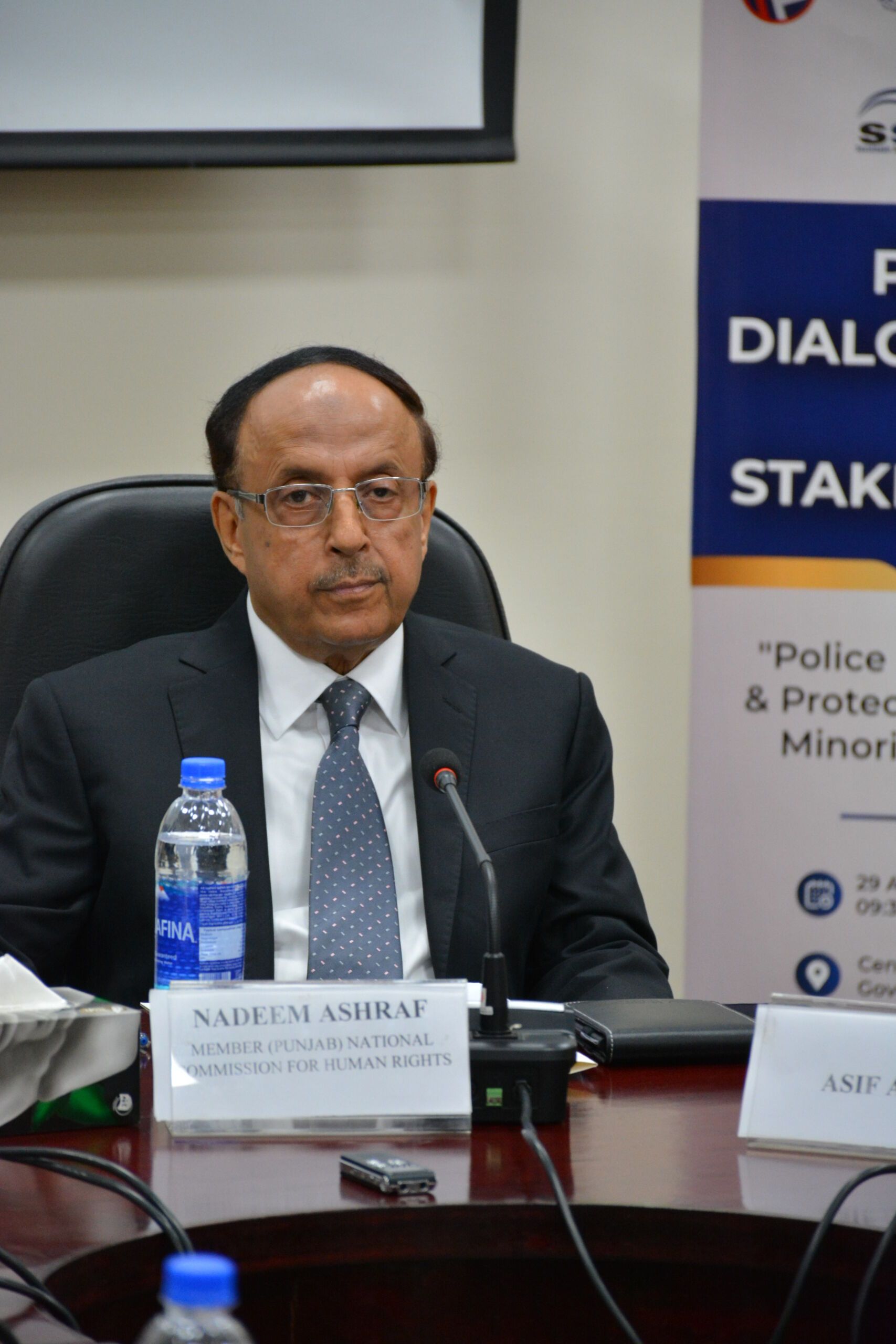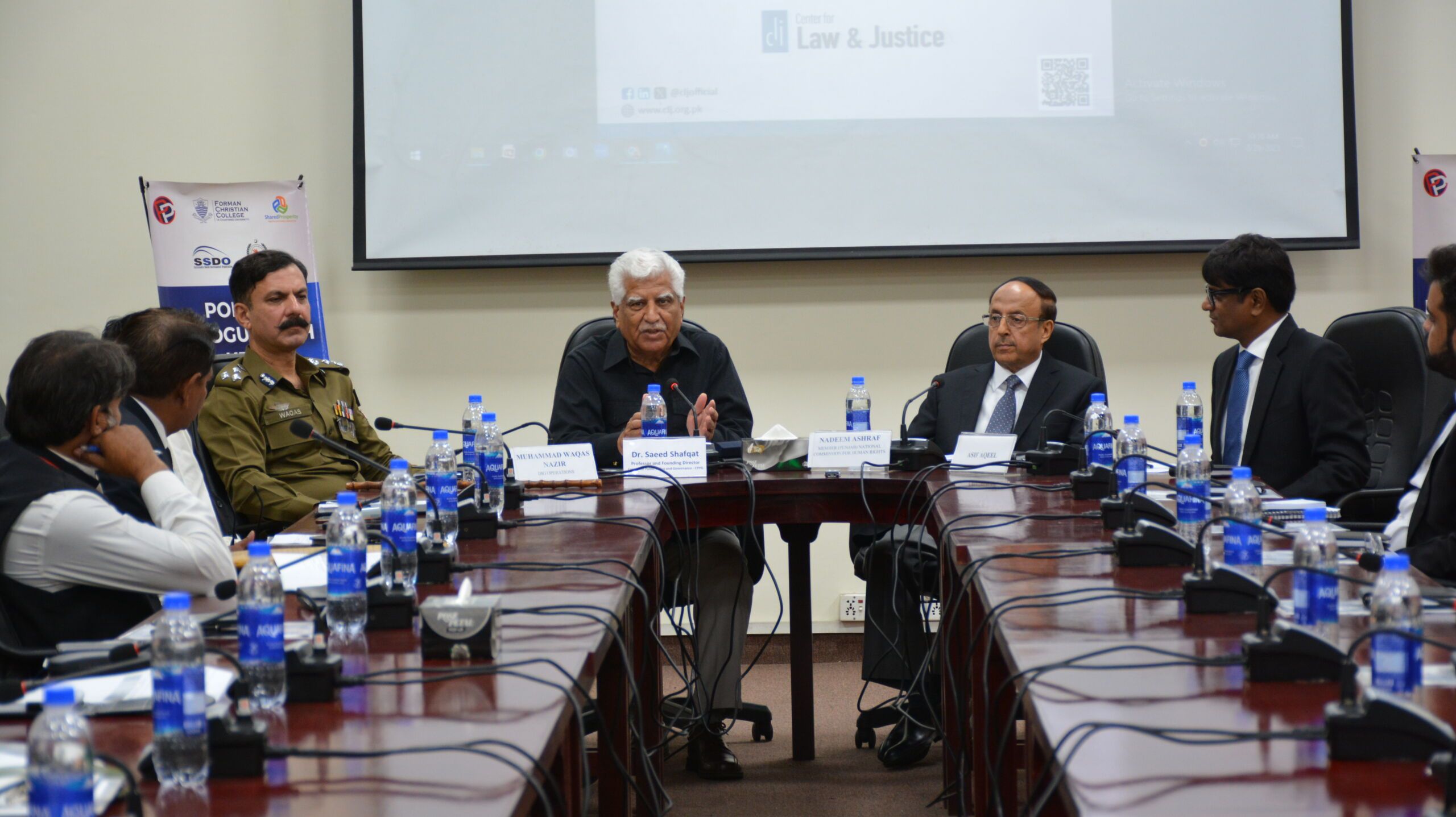
Police Responsiveness and Protection for Religious Minorities in Punjab
Policy Dialogue
Past Event
Aug 29, 2023 - 4:00 pm |
Aug 29, 2023 - 6:00 pm
CPPG
E-002 CPPG FCCU
Upcoming Event
The Centre for Public Policy and Governance at Forman Christian College University organized a policy dialogue on August 29, 2023, on “Police Responsiveness and Protection for Religious Minorities in Punjab”, in collaboration with the Center for Law and Justice. The dialogue was aimed at sharing the findings of a report that CLJ had prepared. The purpose was to identify the challenges and devise strategies concerning the security and rights of religious minorities in Punjab.
In his opening remarks Prof. Dr. Saeed Shafqat, the Centre’s founding director, emphasized the dialogue’s relevance in the socio-political environment of the country, pointing at creating conditions of peace and learning to celebrate religious diversity and curb violence against religious minorities. Asif Aqeel, Deputy Director Center for Law and Justice, highlighted the multifaceted challenges faced by religious minorities, shedding light on violence instances and vulnerabilities in minority neighborhoods.
Participants highlighted the importance of legislative reforms to protect religious minorities. They expressed their apprehensions and threats to minorities including forced conversions, discriminatory policies, and legal exploitation, which derived the demand for equitable rights and safeguards. The importance of narratives in fighting extremism and promoting tolerance was also emphasized.
The discourse explored critical themes such as the impact of “otherization” and potential implications of a separate police force for minorities, potentially leading to segregation. Elementary education and the textbooks that were used came under criticism. It was observed that the textbooks had content that was hostile towards the minorities and needed reform. Several participants drew attention towards the discriminatory attitude of police towards religious minorities pointing out excessive use of force. Instances of biased or inadequate police responses highlighted the need for accountability mechanisms and fair investigations.
There was a broad consensus among the participants and stakeholders for actionable recommendations, emphasizing community policing to foster understanding between law enforcement and minority communities. Religious freedom, tolerance, and restoring police trust through accountability measures were highlighted. Legal reforms, professional police training, protection against forced conversions, and promoting interfaith harmony rounded out the array of recommendations.
Concluding the discussion Dr. Shafqat called for devising ways to bring attitudinal change among police behavior, inculcating the value of tolerance, peace and respect for minorities. He stressed the importance of continued collaboration among stakeholders in translating such discussion and recommendations into actionable policies that ensure religious minorities safety, dignity, and wellbeing.


